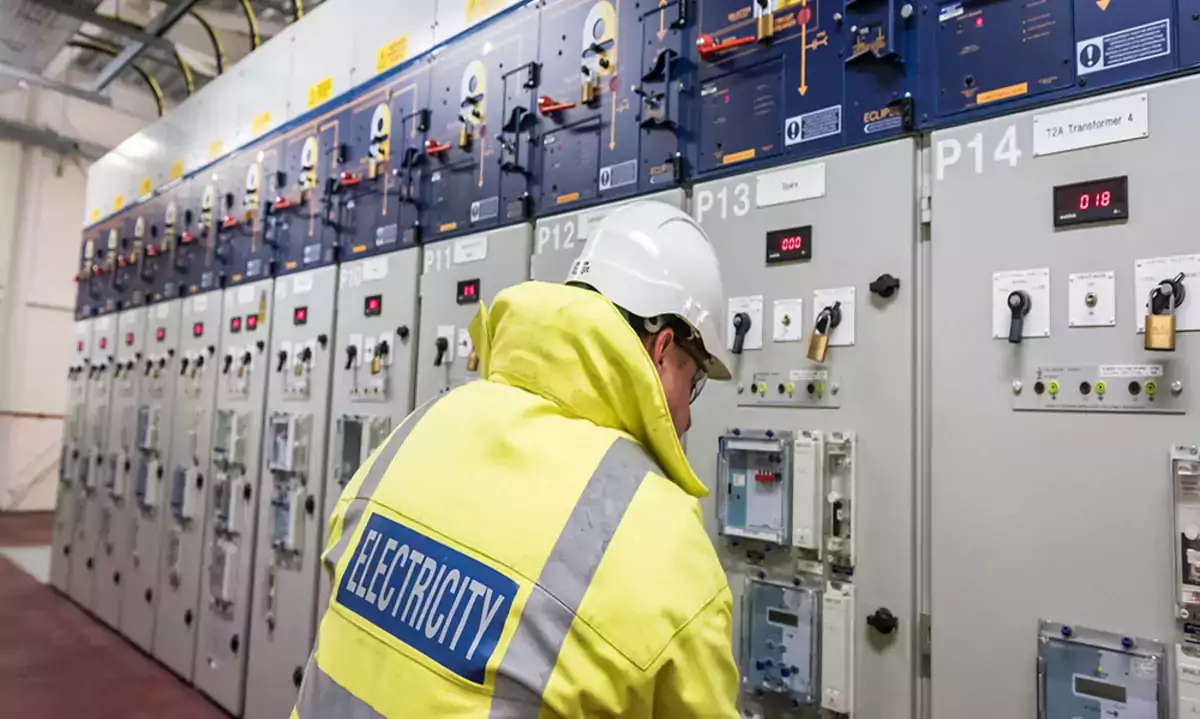Vodafone are to supply UK Power Networks, the country’s largest electricity network operator, with 5G connectivity in a world-first trial.
The deal is part of the electricity network operator’s Constellation project, which will see powerful computers installed in electricity substations so they can communicate with each other in real time, over 5G, to improve efficiency.
Increasing efficiency will enable more clean energy sources and low carbon technologies like electric vehicles to connect to the network. The project is funded by the Network Innovation Competition administered by Ofgem.
Industry experts including General Electric, the University of Strathclyde, ABB and Siemens will develop and demonstrate software solutions so that each substation can edit the configuration of the network automatically to run more efficiently. It means they will be able to respond to dynamic changes to the electricity network or future demands caused by large scale shifts to renewable energy, electric vehicles and electric heating.
In November last year, UK Power Networks launched its Constellation project that aims to transform how electricity networks operate. Constellation enables local substations to analyse millions of datapoints on how the network is running, meaning the network can safely reconfigure itself to enable higher volumes.
The project aims to supercharge the UK’s net zero carbon ambitions by creating extra room for renewables on the network. UK Power Networks has seen a huge rise in the volume of clean energy like wind and solar connecting to the grid over the past ten years, going from just a handful of large, centralised generators in 1990 to more than 170,000 today. These range from household solar panels to large-scale commercial wind farms.
Ian Cameron, head of customer services and innovation at UK Power Networks, said:
“Working with Vodafone and our industry and academic partners, we are creating an exciting platform that keeps our networks the smartest in the world. We already have smart control rooms and smart electric vehicle chargers – developing smart substations in the middle will help us facilitate net zero and deliver real cost and carbon savings for our customers.”
The project aims to supercharge the UK’s net zero carbon ambitions by creating extra room for renewables on the network. UK Power Networks has seen a huge rise in the volume of clean energy like wind and solar connecting to the grid over the past ten years, going from just a handful of large, centralised generators in 1990 to more than 170,000 today. These range from household solar panels to large-scale commercial wind farms.
If rolled out across the UK, the solution being trialled in Constellation could save 63,702 tonnes of CO2 by 2050 – equivalent to the carbon emissions of 38,607 return flights from London to New York.
The smart substations needed to manage the electricity network in real time will communicate with each other over a dedicated, highly secure slice of Vodafone’s 5G Standalone (5G SA) network.
Once substations are connected using 5G – which is up to 100 times faster than 3G and ten times faster than 4G – each substation will be able to analyse millions of data points and manage the network to run more efficiently.
Network slicing is a service that allows Vodafone to create several different virtual networks, each with its own characteristics (e.g. low latency or high bandwidth), across the same infrastructure. This allows customers to define their own network experience depending on their specific requirements. 5G is cheaper than other potential communication methods like optical fibre or microwave connections, so it can be scaled economically across UK Power Networks’ license areas.
Andrea Dona, Chief Network Officer, Vodafone UK, said:
“Helping our customers achieve their ambitious net zero targets is an essential part of our strategy. The team at UK Power Networks has seen the huge potential of 5G and network slicing. 5G is not only replacing older and more expensive technologies, it is bringing about new capabilities that benefit everyone – consumers, businesses and our environment.
We are looking forward to working with UK Power Networks on this exciting and innovative project.”
The Constellation project team will select multiple testing locations across UK Power Networks areas in the South East of England and at the University of Strathclyde’s Power Networks Demonstration Centre, a test facility near Glasgow.



